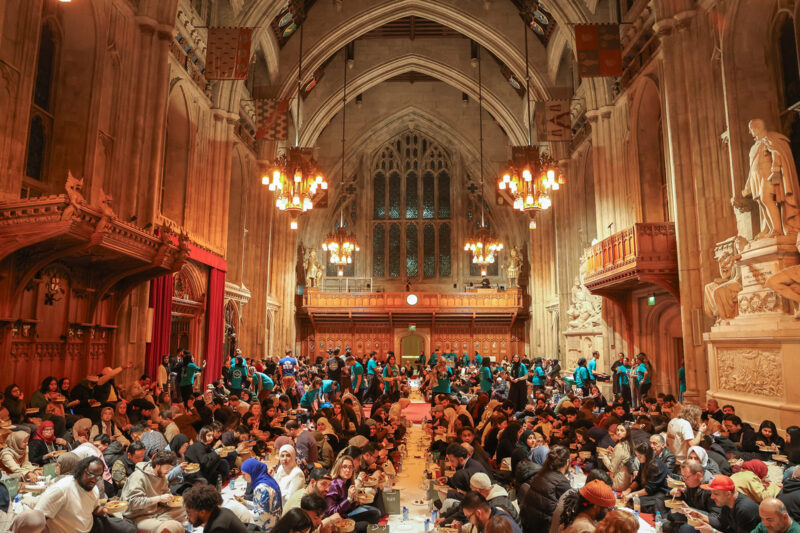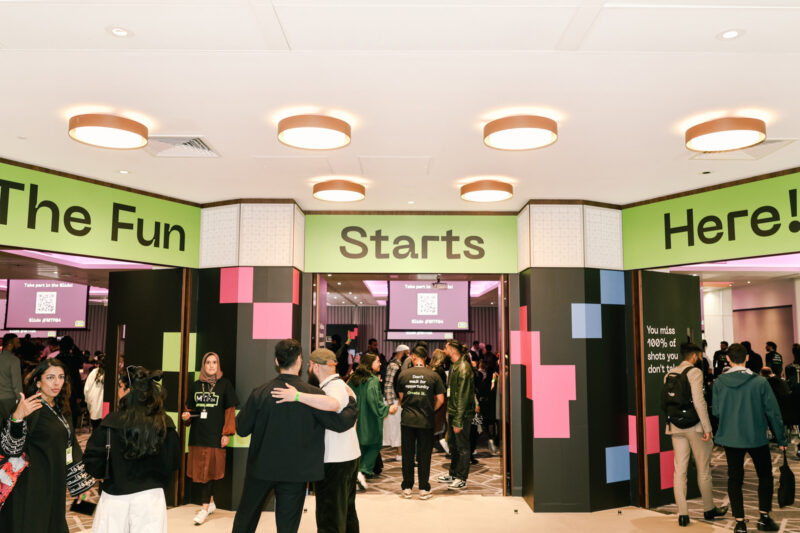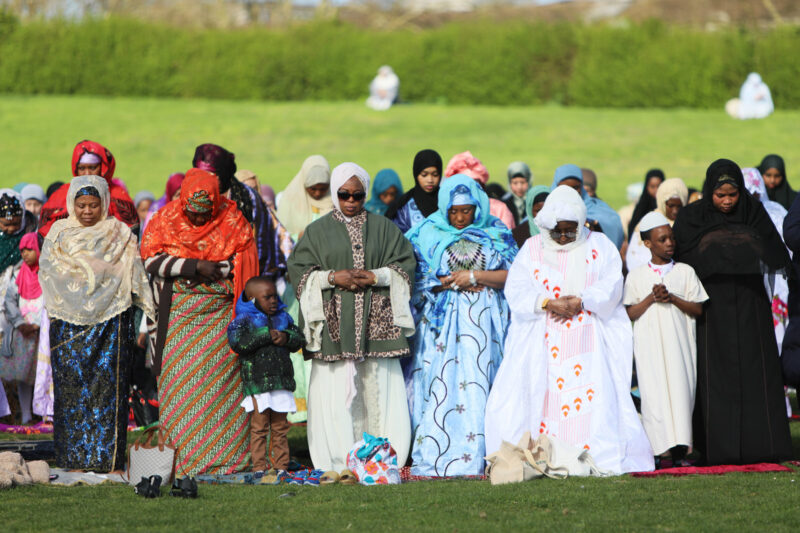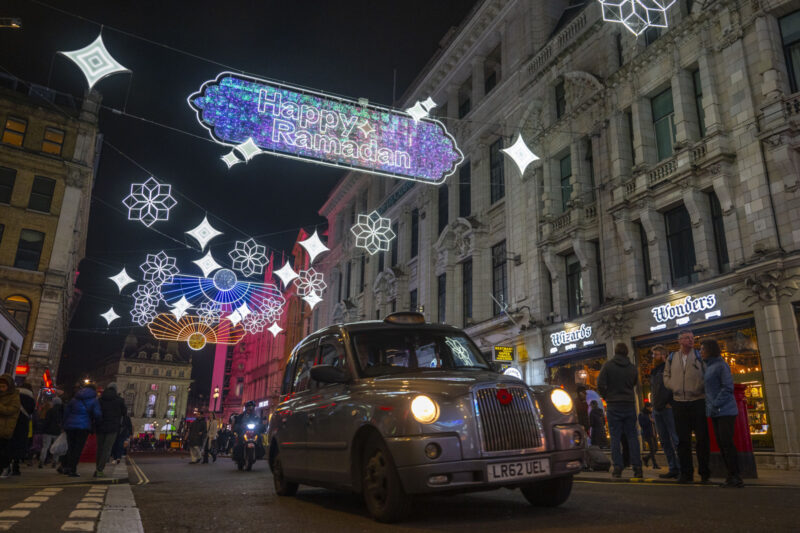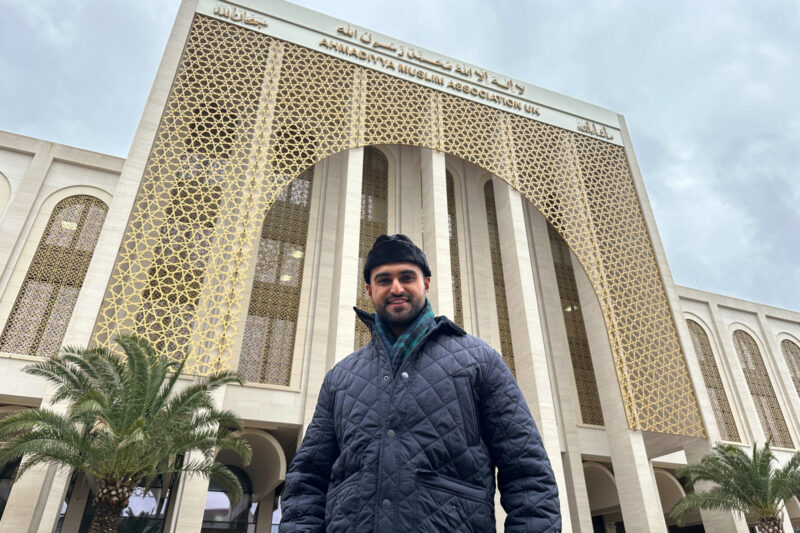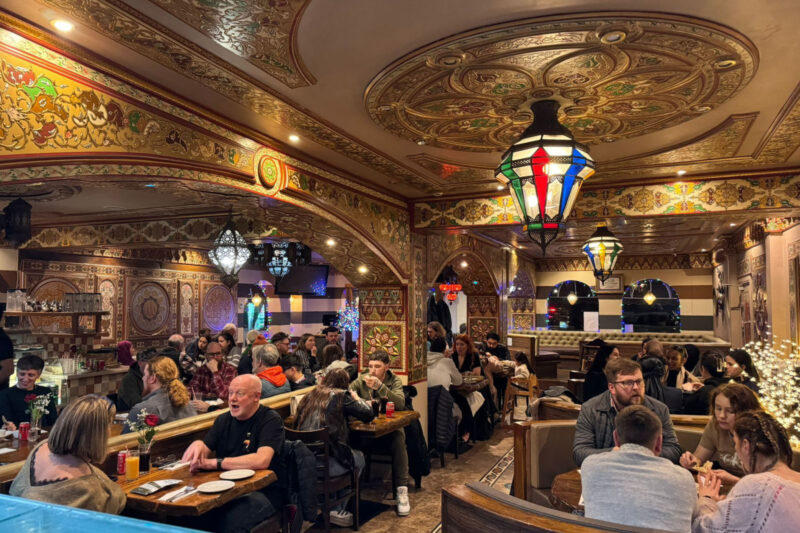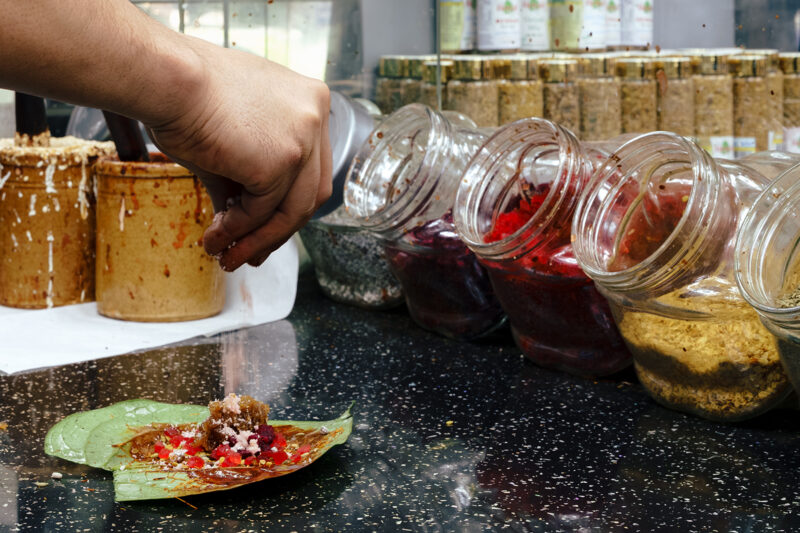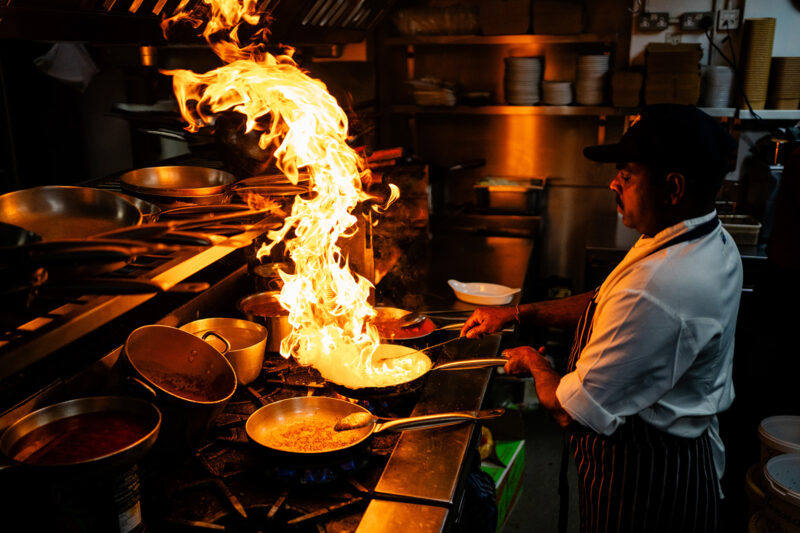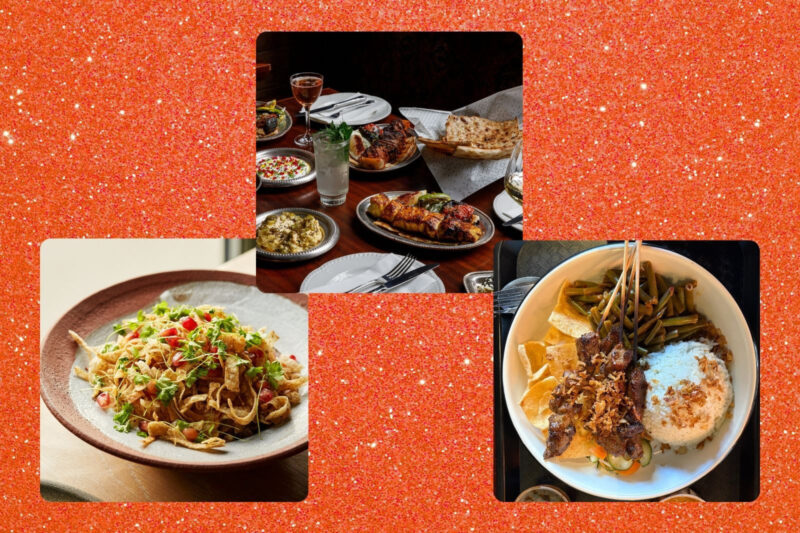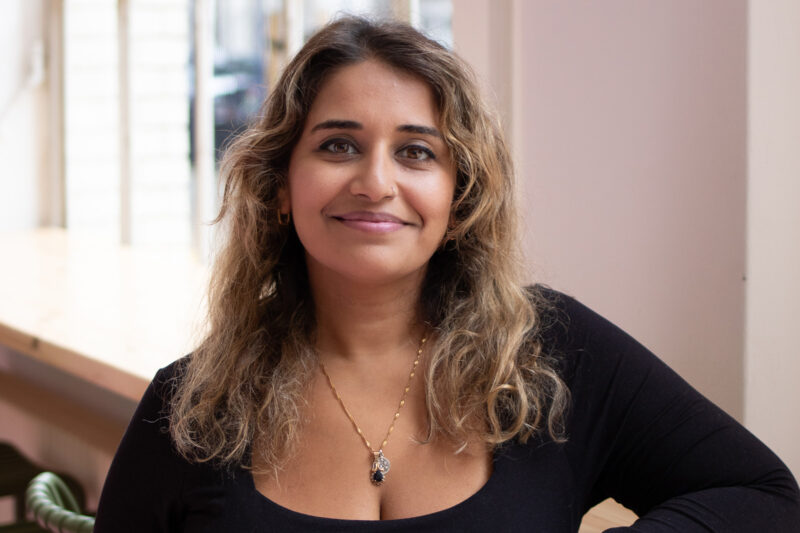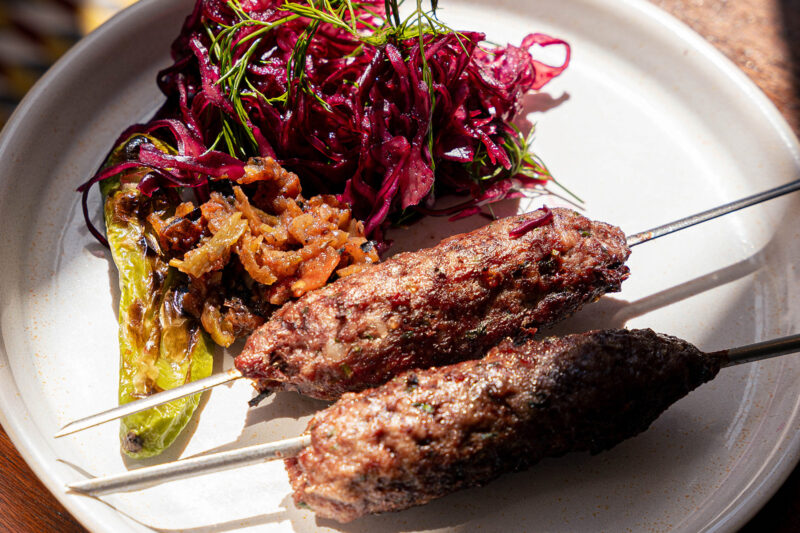A very British iftar at The Great Chase
Inside the London restaurant serving up its own halal take on fine dining
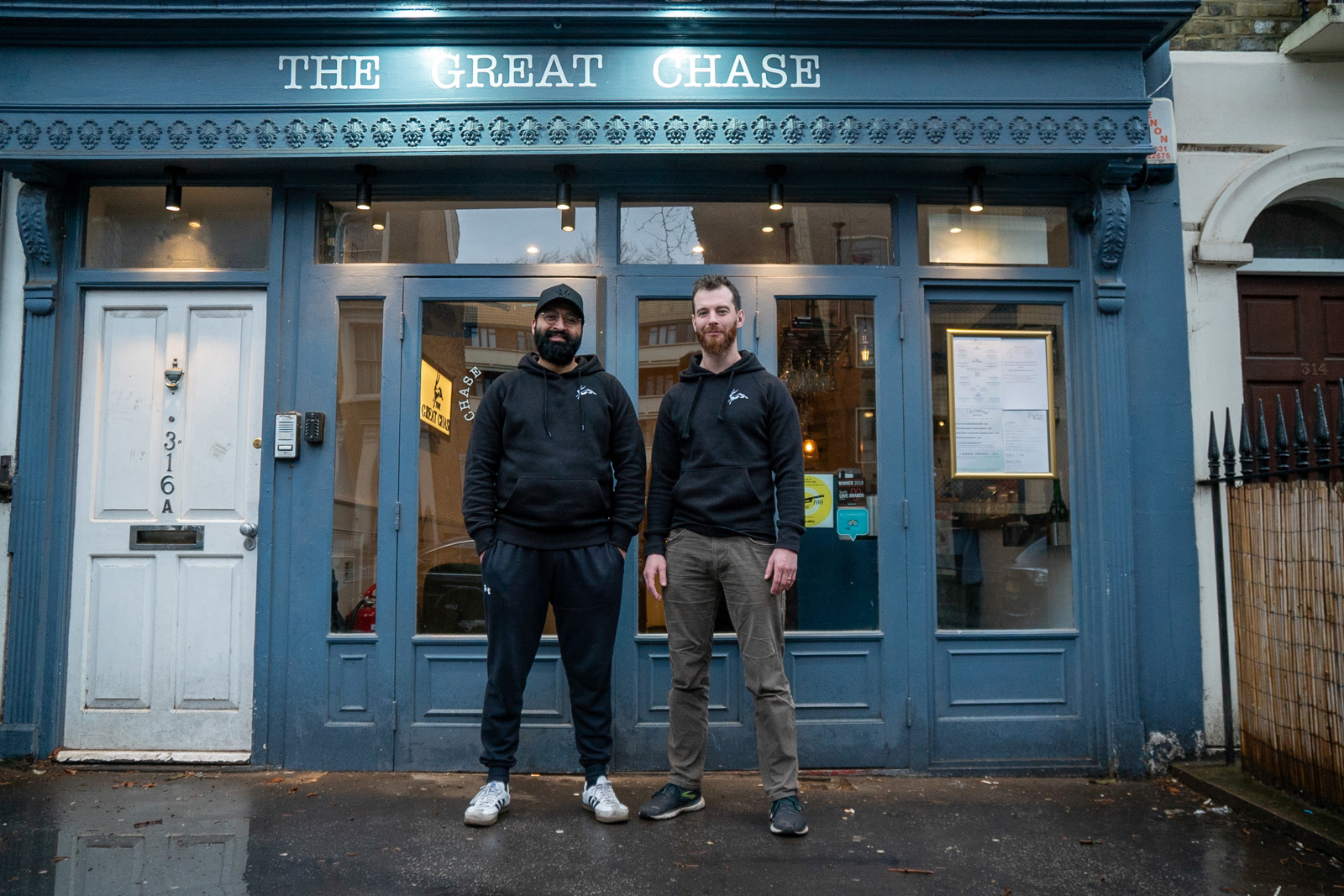
Situated just a stone’s throw from Sadler’s Wells Theatre in Islington, a small restaurant is offering Muslim diners a unique experience. Setting itself apart from the scores of curry houses, steak houses and fried chicken joints across the city, The Great Chase is serving up a modern European menu, filled with British classics, in a fully halal, alcohol-free setting.
When I visited in late January, the restaurant’s founders, Mabruk Khan, 36, and Simon Pearson, 35, were sitting at stripped wood tables, busily finalising plans for Ramadan. This year, the team is reprising its annual Great Ifar with an added twist. Throughout the holy month, the restaurant is serving platters of meat and vegetables, designed to be shared family-style, which Khan and Pearson hope will replicate the communal experience of dining at home.
“We want people to serve each other, and try bits and pieces from each other’s plates,” Khan said. “We’re trying to create a lovely, open environment that really captures the essence of Ramadan.”
Pearson and Khan founded the restaurant in 2017 after a conversation about the lack of fine dining options available to Muslim diners in London. While Pearson, a former chef, had long enjoyed the variety of British and European food the capital has to offer, Khan’s experience had been limited by his faith.
“I come from a corporate background and often had to take clients out to dinners at very nice restaurants,” Khan said. “I found that I really enjoyed the experience. I enjoyed the service, the food that was on offer and how they paired it with the drinks. The downside was that I couldn’t actually eat most of it.
“It’s a real shame, because a lot of us Muslims, we identify as British. We’ve been here for generations, but we rarely get to eat traditional British food.”
Recognising a gap in the market, the friends set out to create a restaurant that would merge Khan’s beliefs with the classic British cuisine Pearson grew up with.
“We wanted to open the kind of restaurant that we could both hang out in, without compromise on the quality of food,” Pearson said. “People come together over food, and by being both halal and alcohol-free, it means that anybody can come here.”
The Great Chase serves around 500 diners per week and is popular among both Muslims and non-Muslims. In November 2023, it was one of eight London restaurants to receive the Good Food Awards’ Gold Seal. Pearson and Khan credit some of their success to celebrity clients, including Zoe Ball, Matt Lucas and Love Island’s Indiyah Polack, along with changing national attitudes towards alcohol consumption.
According to a 2023 report by Mintel, six in 10 UK adults either avoid alcohol or limit their consumption. In 2022, the hospitality research agency KAM found that almost a third of pub visits (29%) and 37% of restaurant visits are completely alcohol-free.
The most popular dishes at The Great Chase are the roast dinners — including 38-day dry-aged sirloin of beef, free-roam roast chicken, slow-roast lamb shank and vegan wellington — available every Saturday and Sunday from 12pm to 9pm.
The main menu also offers steaks and adventurous starters that pay homage to traditional European dishes. Options change every three months and the current selection includes a halal chilli scotch egg with hibiscus, piccalilli, and maple and date chutney; duck galantine with cheese parfait and mulled pear cream; and prawn chilli parcels, paired with celeriac and white chocolate puree.
“Galantine is a 17th-century piece of classic French gastronomy,” Pearson said. “It’s not something you typically find on a halal menu, but I think it’s important to have it because it’s one of the cornerstones of what later turned into fine dining. “At the opposite end of the spectrum, the scotch egg is slightly messy, simple, feelgood food.”
‘People come together over food, and by being both halal and alcohol-free, it means that anybody can come here.’
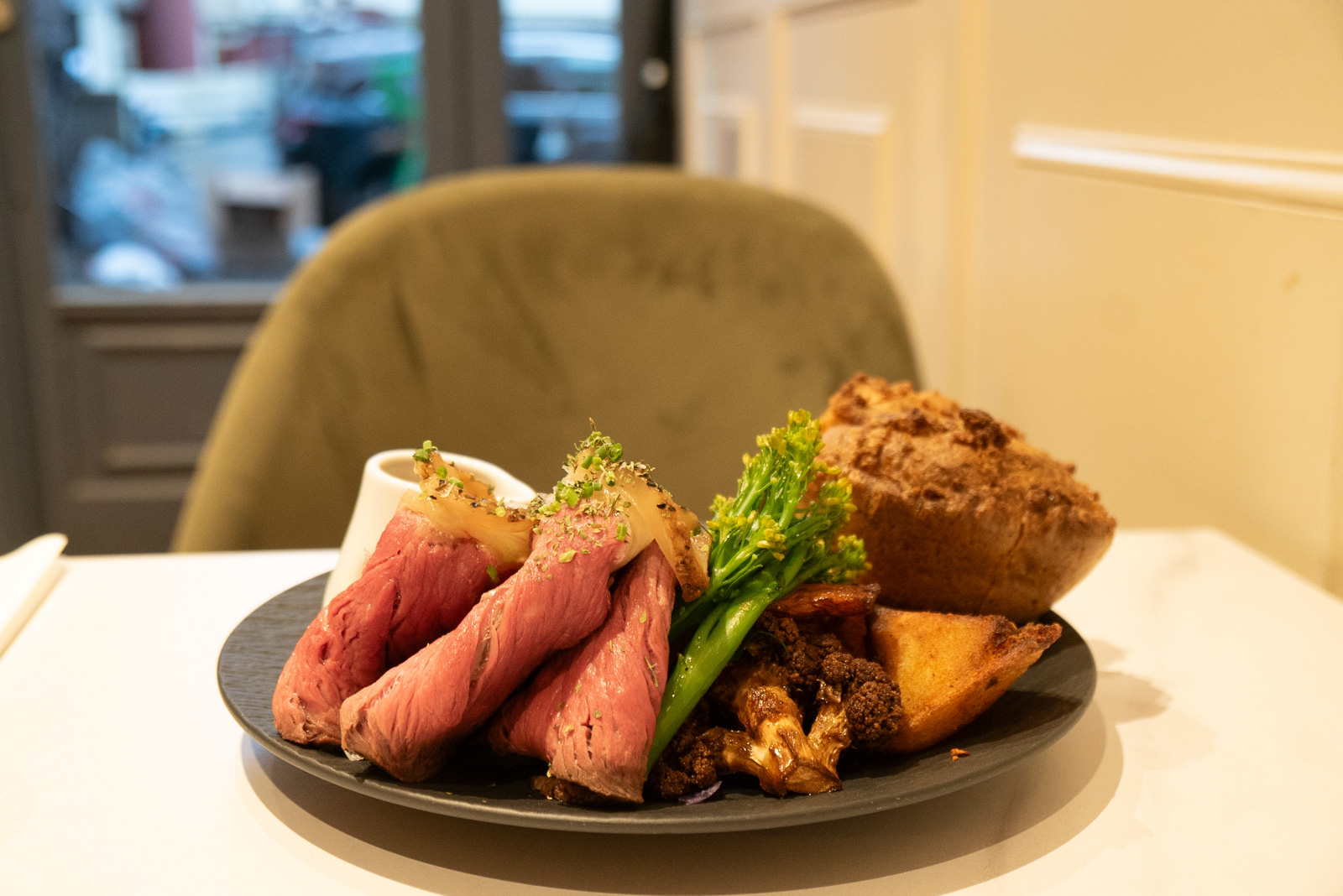
In London, adventurous eaters can now enjoy halal food from an array of cuisines, from Korean and Japanese to Ethiopian and Peruvian. According to research published in 2020 by the Agriculture and Horticulture Development Board, 27% of the UK’s Muslim population eats out every week, more than double the national average (13%). Muslims also tend to eat more meat and account for 20% of lamb consumption in England.
Pearson and Khan, however, say that sourcing quality halal meat and produce is a constant challenge. “Having worked with both halal and non-halal suppliers, I can tell you that both can be unprofessional and can fail you, but there is a much higher occurrence with halal suppliers,” Pearson said.
“There have been times when we have ordered steaks, and you could see by looking at them that the meat wasn’t of good quality and we had to send it back,” Khan added. “We set a really high bar, to the point that the owners of the businesses now pick out cuts for us.”
Owing to the restaurant’s ambitious seasonal menu, Khan and Pearson often find themselves sourcing ingredients at least six months in advance. When I met them, they were already in conversation with suppliers about dishes that won’t be available until 2025.
For Ramadan, diners have the choice of sirloin steak, roast duck, confit chicken legs and beef wellington, served with beef dripping fries, spiced roasted vegetables and a selection of sauces. Prices for The Great Iftar start at £45 per head for the vegetarian option, and £55 for meat eaters. To make the experience as seamless as possible, orders must be made in advance, via email.
At maghrib time, the adhan is played through the restaurant. Following the sunnah of the prophet Muhammad, who encouraged Muslims to open their fasts with an odd number of dates, guests will be given two medjool dates, along with homemade honey and rosemary bread with coconut and date butter. The restaurant also has a newly renovated prayer space where women will be invited to pray first.
“Throughout generations, our mothers always cooked the iftar and the men came and enjoyed it, without having to do much of the work,” Khan explained. “So, on a night out, we want sisters to be able to pray first, then come back to the table, sit back and completely relax.”
 Newsletter
Newsletter


